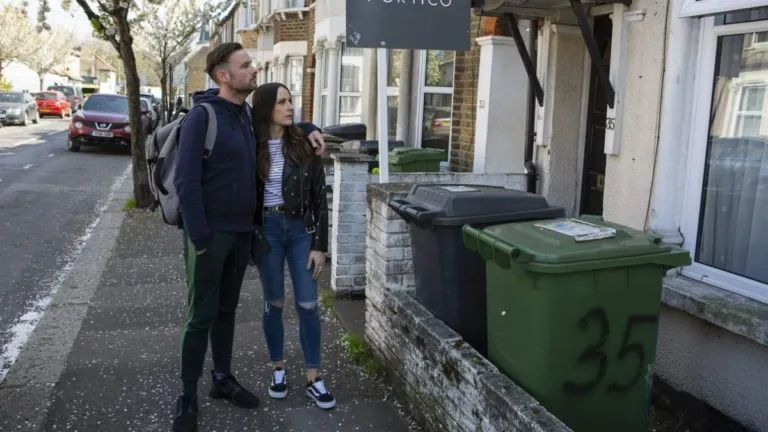Section 21 reform: red flags in a White Paper
Published: by Ruth Ehrlich

England’s 11 million private renters are waiting with bated breath for the long overdue Renters’ Reform Bill White Paper. The Renters’ Reform Bill, first announced in the Queen’s Speech of 2019 and recommitted to in 2021, promises to scrap section 21 ‘no fault’ evictions, where a landlord can evict a tenant with just two months’ notice for no reason whatsoever.
With our latest research showing that someone is served with a no fault eviction notice every seven minutes, renters can’t wait much longer.
The White Paper will tell us what the bill might look like. We want to see no fault evictions scrapped for good, the introduction of a National Landlord Register, and better routes for redress for tenants when things go wrong.
But we’re also keeping our eyes peeled for proposals that might harm renters rather than help them. Here are the red flags we’re going to be looking for:
Making it easier to evict people with rent arrears
We’re watching out for proposals that would make it easier to evict people with rent arrears, because doing so in the midst of a cost of living crisis would be disastrous for already-struggling renters. The government needs to introduce a Renters’ Reform Bill that provides more security for renters and gives them the stability to weather the storms ahead.
We know that scrapping section 21 evictions means there will be changes to section 8 of the Housing Act 1988, which permits landlords to evict if they have a legitimate reason for doing so. Currently, renters can be evicted if they have eight weeks’ worth of arrears at the time the landlord serves notice on them, and at the point of their court hearing. While that might sound like a lot, when you take into account the fact that struggling renters have to wait five weeks for their Universal Credit to be paid, and the precarity of zero-hours contracts and insufficient housing benefit, it’s pretty easy to get to that point.
With millions of people struggling financially – and over a third of private renting households claiming housing benefit – now is the time to protect people, not make it easier for them to become homeless.
Allowing landlords to evict via unfair rent hikes
The government has promised to scrap unfair no fault evictions for good, but in order to do so, they need to close the loopholes which will allow no fault evictions by the back door. We want to see measures to protect renters from unfair, extortionate rent increases, which could be used to force renters out without having to give them a legitimate reason for the eviction.
In the current system, renters can challenge unfair rent increases by taking their landlord to the Residential Property Tribunal. In reality, very few renters do this. This is for a couple of reasons. Firstly, renters know they can be served with a section 21 eviction notice, so even if they successfully challenged the increase, they’d run the risk of being evicted as a result. Secondly, not many renters know about the Tribunal and the process is completely unfit for the 21st century. Any system where you need to print off a document, fill it in and send it off in a stamped envelope is not one that’s going to be accessible for the masses.
At the very minimum, the White Paper needs to commit to improving and reforming the tribunal service – and ideally go further in looking at ways to stop unfair rent increases in the first place, as set out by the [Renters’ Reform Coalition](https://www.rentersreformcoalition.co.uk/sites/default/files/RRC Blueprint for Reform.pdf).
Losing sight of the need for reform
There’s a reason why Theresa May committed to scrapping section 21 evictions back in 2019. Renters had been struggling for too long. The private rented sector had become home to families with children, older people, and people who desperately needed the stability and security that private renting just cannot provide. Policy measures and legislative changes like buy-to-let mortgages and the Housing Act 1988 sought to drive investment in the sector. They were successful in this aim, but along the way created a bloated and underregulated sector that is failing to provide the safe and decent homes that people so desperately need.
The government promised to rebalance the relationship between landlord and tenant, which for too long has tipped in favour of landlords. We’re going to be watching out for any watering down of the promises made, or compromises that mean tenants will be just as bad off as they are now.
We’ve seen piecemeal bits of legislation introduced in the past decades which have contributed to the mess we are in now. Only bold, wholesale reform will bring about the change renters are waiting for.